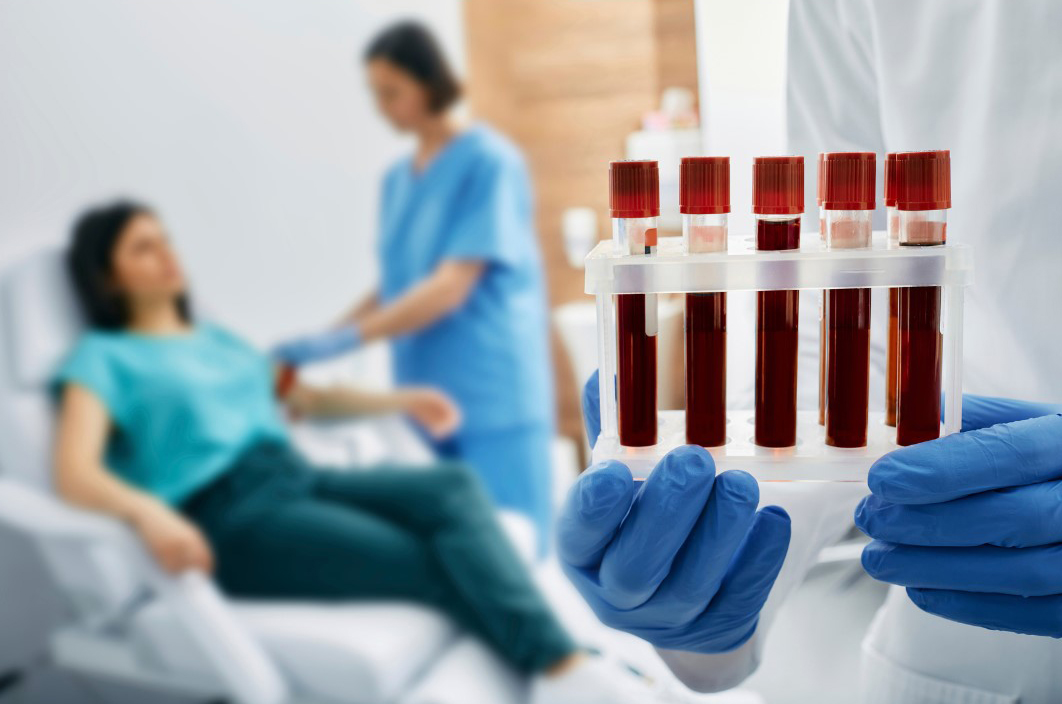Understanding the Conditions That Call for Genetic Testing to Enhance Your Health Journey

Sexual health is an integral facet of overall well-being, encompassing both physical and emotional dimensions. A cornerstone of sexual health is the awareness and prevention of Sexually Transmitted Diseases (STDs). STDs, also referred to as sexually transmitted infections (STIs), are diseases transmitted through sexual contact. While numerous STDs can be effectively treated, some can have severe long-term consequences if left untreated. STDs are a diverse group of infections that can affect various parts of the body, including the genitals, rectum, and throat. They can be caused by bacteria, viruses, or parasites. Some STDs can be asymptomatic, meaning they may not cause any noticeable symptoms, while others can lead to a range of health problems.
Importance of STD Testing
Regular STD testing is essential for maintaining sexual health. It allows individuals to:
Detect STDs early: Early detection of STDs is paramount for timely treatment and the prevention of complications. Many STDs, if left untreated, can lead to severe health consequences, including infertility, pelvic inflammatory disease, and even death in some cases.
Prevent the spread of STDs: By understanding their STD status, individuals can take proactive measures to prevent transmitting infections to their partners. This involves practicing safe sex, such as using condoms, and communicating openly with partners about their sexual health.
Receive appropriate treatment: If an STD is diagnosed, individuals can receive the necessary treatment to manage or eradicate the infection. Early treatment can prevent the spread of the infection to others and reduce the risk of long-term complications.
Promote sexual health awareness: Regular STD testing can encourage open dialogue about sexual health and reduce the stigma associated with STDs. By breaking down barriers and promoting open communication, we can create a more supportive and understanding environment for individuals seeking sexual health services.
Common STDs
Several STDs are prevalent worldwide. Some of the most common include:
Chlamydia: A bacterial infection often asymptomatic in women but can lead to pelvic pain, abnormal discharge, and infertility if left untreated.
Gonorrhea: A bacterial infection that can affect the genitals, rectum, and throat. Symptoms may include pain, discharge, and burning during urination.
Syphilis: A bacterial infection that can cause a variety of symptoms, including sores, rashes, and neurological problems. If left untreated, syphilis can have severe long-term consequences, including cardiovascular disease, blindness, and dementia.
Human Immunodeficiency Virus (HIV): A viral infection that weakens the immune system, making individuals susceptible to opportunistic infections. HIV is a chronic and life-threatening condition that requires lifelong medical management.
Genital Herpes: A viral infection that causes painful sores on the genitals, rectum, or mouth. While genital herpes is not curable, the symptoms can be managed with antiviral medications.
Human Papillomavirus (HPV): A viral infection that can cause genital warts and cervical cancer. Most HPV infections are harmless and resolve on their own, but some strains can lead to cancer. Regular cervical cancer screening is essential for early detection and prevention.

Risk Factors for STDs
Several factors can increase the risk of contracting an STD:
Multiple sexual partners: Having multiple sexual partners increases the likelihood of exposure to STDs.
Unprotected sex: Engaging in unprotected sexual intercourse, including oral, anal, and vaginal sex, can significantly increase the risk of STD transmission.
History of STDs: Individuals who have had STDs in the past are more likely to contract them again.
Substance abuse: Substance abuse can impair judgment and increase risky sexual behaviors.
When to Get Tested
It is recommended that sexually active individuals get tested for STDs regularly. The frequency of testing may vary depending on individual risk factors. Some people may benefit from more frequent testing, such as those who have multiple sexual partners, those who have had STDs in the past, or those who have engaged in unprotected sex.
How to Get Tested
STD testing can be done at various healthcare settings, including:
Doctor’s office: Many healthcare providers offer STD testing as part of routine check-ups.
Community health clinics: These clinics often provide affordable and accessible STD testing services.
Planned Parenthood: Planned Parenthood health centers offer a comprehensive range of reproductive health services, including STD testing and counseling.
Private laboratories: Some private laboratories offer STD testing services.
Confidentiality and Privacy
Most healthcare providers and clinics adhere to strict confidentiality laws regarding STD testing. Your personal information will be kept private, and your test results will be shared only with you or with authorized healthcare providers.
Understanding STDs and practicing safe sexual behaviors is essential for maintaining sexual health. Regular STD testing is a vital tool for early detection, prevention, and treatment of these infections. By being informed and proactive, individuals can protect themselves and their partners from the potential consequences of STDs.

Novalab: Your Partner in Sexual Health
Novalab Reference Medical Lab offers comprehensive STD testing services, ensuring your sexual health remains a priority. Here’s why Novalab is your trusted partner:
Wide Range of Tests: Novalab provides a comprehensive panel of tests to detect a variety of STDs, including Chlamydia, Gonorrhea, Syphilis, HIV, Herpes, and more.
Accurate and Reliable Results: Our state-of-the-art testing methods and commitment to quality ensure accurate and timely results.
Confidential and Discreet: Your privacy is our top priority. We maintain strict confidentiality standards and offer discreet testing services.
Convenient Location: Novalab is conveniently located in Wayne, New Jersey, making it easy to access our services.
Experienced Staff: Our dedicated healthcare professionals are committed to providing compassionate care and guidance throughout the testing process.
Take Control of Your Sexual Health
Novalab Reference Medical Lab’s affordable pricing and convenient location make it easy to prioritize your sexual well-being. By choosing Novalab for your STD testing, you’re taking a proactive step towards safeguarding your sexual health and protecting those around you. Contact Novalab at 973-832-7902 or 973-832-7980 to schedule your appointment.
